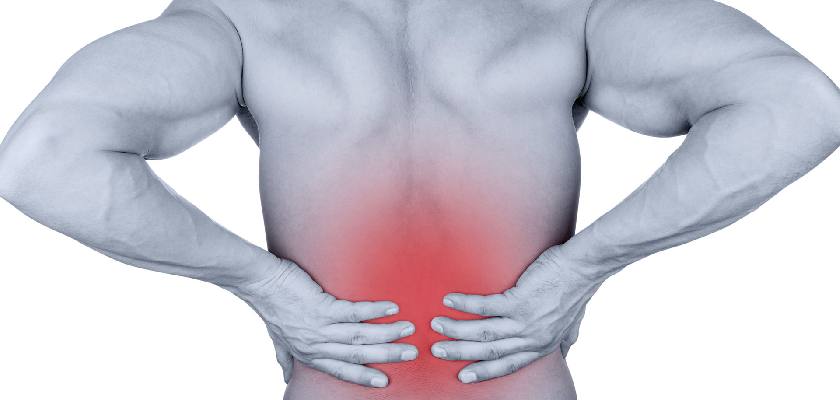
The human back is composed of a complex structure of muscles, ligaments, tendons, disks, and bones, which work together to support the body and enable us to move around.
The segments of the spine are cushioned with cartilage-like pads called disks.Problems with any of these components can lead to back pain. In some cases of back pain, its cause remains unclear.
Damage can result from strain, medical conditions, and poor posture, among others.
Surgery
Surgery for back pain is very rare. If a patient has a herniated disk surgery may be an option, especially if there is persistent pain and nerve compression which can lead to muscle weakness.
Examples of surgical procedures include:
- Fusion: Two vertebrae are joined together, with a bone graft inserted between them. The vertebrae are splinted together with metal plates, screws or cages. There is a significantly greater risk for arthritis to subsequently develop in the adjoining vertebrae.
- Artificial disk: An artificial disk is inserted; it replaces the cushion between two vertebrae.
- Diskectomy: A portion of a disk may be removed if it is irritating or pressing against a nerve.
- Partially removing a vertebra: A small section of a vertebra may be removed if it is pinching the spinal cord or nerves.
- Exercise. One of the most important things you can do for back pain prevention is to get up and get moving. Why does exercise prevent back pain? Muscles are meant to move, says Robin Lustig, DC, a chiropractor at New Jersey Total Health Center in Lodi and Pompton Plains, N.J. If you aren't in good shape, you're more likely to hurt your back and feel pain when you do even simple movements, such as lifting your child from his crib. "Also, exercise helps keep your joints fluid," Dr. Lustig says. Another reason exercise prevents back pain is that exercise helps you keep your weight down — being overweight, especially around your stomach, can put added strain on your back.
- Eat right. "If you maintain good eating habits, you not only will maintain a healthy weight, but you also will not put unnecessary stress on your body," Lustig says. A steady diet of excessively spicy or fast food can strain your nervous system, which is going to create back problems, she adds. Conversely, a healthy diet of fresh fruits and vegetables, lean meats, dairy products, and whole grains will keep your digestive tract on track. "If your intestines are working and functioning properly, that will maintain your spine because your inside and your outside relate to one another," Lustig says. "I have found that many people who come in complaining of low back pain also have irritated bowels."
- Sleep sideways. You don't want to sleep flat on your back. The best position for sleeping is on your side. If you must sleep on your stomach, put a pillow under your lower abdomen to help take stress off your back. Having a supportive mattress and pillow for your head are vital as well. "Getting enough, restful sleep is always an important part of maintaining good health," Lustig says. Also, if you exercise during the day, you sleep better at night.
- Maintain proper posture. "People sitting at their computer for seven or eight hours a day is keeping me in business," says Lustig. "People slouch over their computers and their telephones when they're texting, and they don't realize the damage they're doing to their backs and the pain they could be causing." Be sure to work at an ergonomically correct workstation, both at the office and at home, and break up long periods in front of the computer with stretching exercises. If you practice good posture, you will maintain the natural curves of your back and help keep it strong.
- Reduce stress. You probably don't realize how much stress can impact your back health. Stress causes you to tense your muscles, and constant tension of this kind can cause back pain. Any activity that helps you reduce stress will help prevent back pain, Lustig says. Stress reduction activities can include yoga, meditation, biofeedback, deep breathing, tai chi, and guided imagery.
- Quit smoking. It's well known that smoking raises your risk for heart disease and cancer, including lung and colon cancers, but most people don't realize that smoking also can be a cause of persistent back pain. Research also shows smoking can make existing back pain worse. It's not entirely clear how smoking affects back health, but one possibility is that it narrows blood vessels. Narrowed blood vessels result in less oxygen and nutrients reaching the spine and, in turn, it becomes more susceptible to injury and slower to heal.
